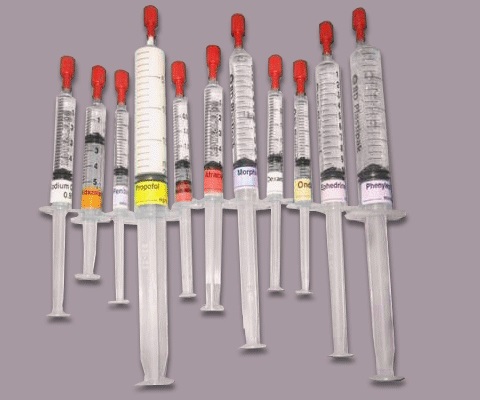General Anaesthetic Drugs
Anaesthesia involves a large number of variables, including the interactions between the patient, surgery and the polypharmacy of anaesthesia.
Many delays in recovery are due to the prolonged action of a drug or combinations of drugs, with several possible different factors being behind this prolongation.
The effects of a drug on a patient’s recovery are governed by the dose administered, and by its:

Pharmacokinetic factors
Pharmacokinetic reasons for delayed recovery may be related to drug:
- Absorption
- Distribution
- Metabolism
- Excretion
In its most extreme form, suxamethonium may last for several hours in a patient with homozygous atypical plasma cholinesterase.
During very long surgery, inhalational agents will accumulate in the tissues, prolonging the time for their subsequent excretion.
Renal or hepatic impairment, hypothermia, hypovolaemia or acidosis may impair the metabolism or excretion of many drugs, but particularly opioids and NMBDs.
Pharmacodynamic factors
Sensitivity to drugs can vary enormously, with the required dose range being particularly great with opioids.
The elderly are particularly sensitive to anaesthetic agents, with MAC for inhalational agents declining at a rate of 6 % per decade. The incidence of postoperative confusion is also high in those over 80 years of age, which may present in recovery.
If drugs of similar class are combined for their clinical effects in theatre, they may produce a synergistic and prolonged action e.g. benzodiazepines and opioids.